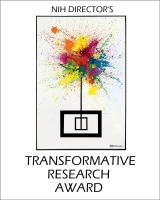2022 Awardees
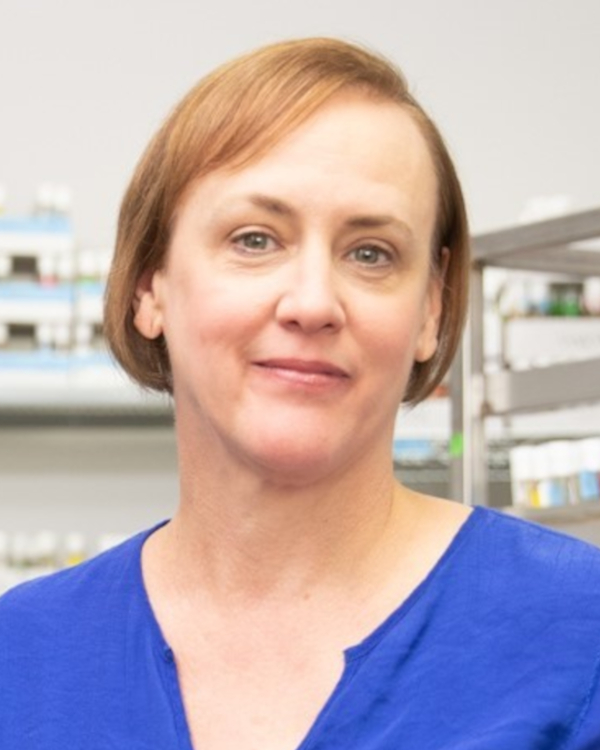
Julie K. Andersen, Ph.D.
Buck Institute for Research on Aging
Project Title: A Smart Cell Drug (SmaCD) Delivery Platform for Mobile, Targetable, and Self-Regulated Combination Therapy: A Model Project to Rescue Antibodies from Alzheimer's Disease (AD) Clinical Trial Failures
Grant ID: R01-AG081989
State University in 1983 and her Ph.D. from the Department of Biological Chemistry, in the David Geffen School of Medicine at the University of California, Los Angeles. UCLA School of Medicine in 1989. After completing her post-doctoral studies in the Department of Neurology, Harvard University, Julie joined the Faculty at the School of Gerontology, University of Southern California in 1993. She subsequently moved her laboratoty to the the Buck Institute for Research on Aging in Novato, CA in 2000. The Andersen lab concentrates on understanding the underlying age-related processes driving neurodegenerative diseases in order to identify novel therapeutics that slow or prevent them from occurring. She has been recognized for her research with a Parkinson’s Pioneer Award from the National Parkinson’s Foundation, a Glenn Award for Research in Biological Mechanisms of Aging, and a senior scholarship from the Ellison Medical Foundation. She was elected a fellow of the Society for Free Radicals in Biology and Medicine in 2013.
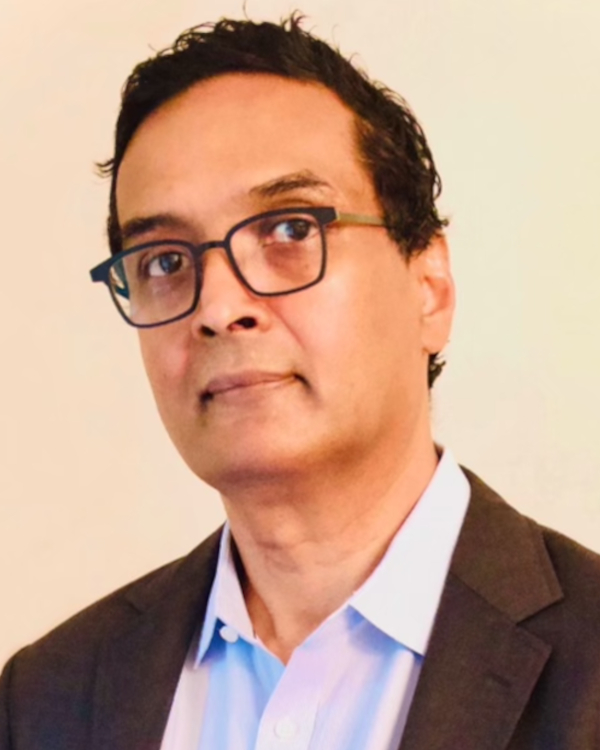
Eva S. Anton, Ph.D.
University of North Carolina at Chapel Hill
Project Title: Primary Cilia: A Novel Signaling Gateway To Neural Circuit Modulation
Grant ID: R01-MH132710
MPIs: Jeff Lichtman, M.D., Ph.D. and Ryohei Yasuda, Ph.D.
Eva Anton is a Professor of Neuroscience at the University of North Carolina, Chapel Hill. Dr. Anton received his Ph.D. in neurobiology from Duke University and was a postdoctoral fellow in Prof. Pasko Rakic’s laboratory at Yale University. Prof. Anton's research is focused on understanding the cell and molecular basis of cerebral cortical development and neurodevelopmental disorders using multi-modal strategies. His work was recognized with Cardinal Basil O’ Connor award, NARSAD Young Investigator award, Staglin award, and NIH’s EUREKA award.

Theodore P. Beauchaine, Ph.D
University of Notre Dame
Project Title: Leveraging Noninvasive Transcutaneous Vagus Nerve Stimulation and Smartphone Technology to Reduce Suicidal Behaviors and Suicide Among Highly Vulnerable Adolescents
Grant ID: R01-MH133226
MPIs: Arielle Sheftall, Ph.D. and Kristin Valentino, Ph.D.
Theodore Beauchaine is William K. Warren Foundation Professor of Psychology at the University of Notre Dame, where he co-directs the Notre Dame Suicide Prevention Initiative. His research focuses on biological vulnerabilities to behavioral impulsivity and emotion dysregulation, and how these vulnerabilities (e.g., genetic, neural) can be potentiated by social determinants of mental health (e.g., maltreatment, neighborhood violence, marginalization) to increase risk for self-injury, suicidal behavior, and other forms of psychopathology. His work spans levels of analysis from genes to cultures, with the goal of identifying mechanisms of psychopathology to be targeted by scalable prevention and intervention programs.
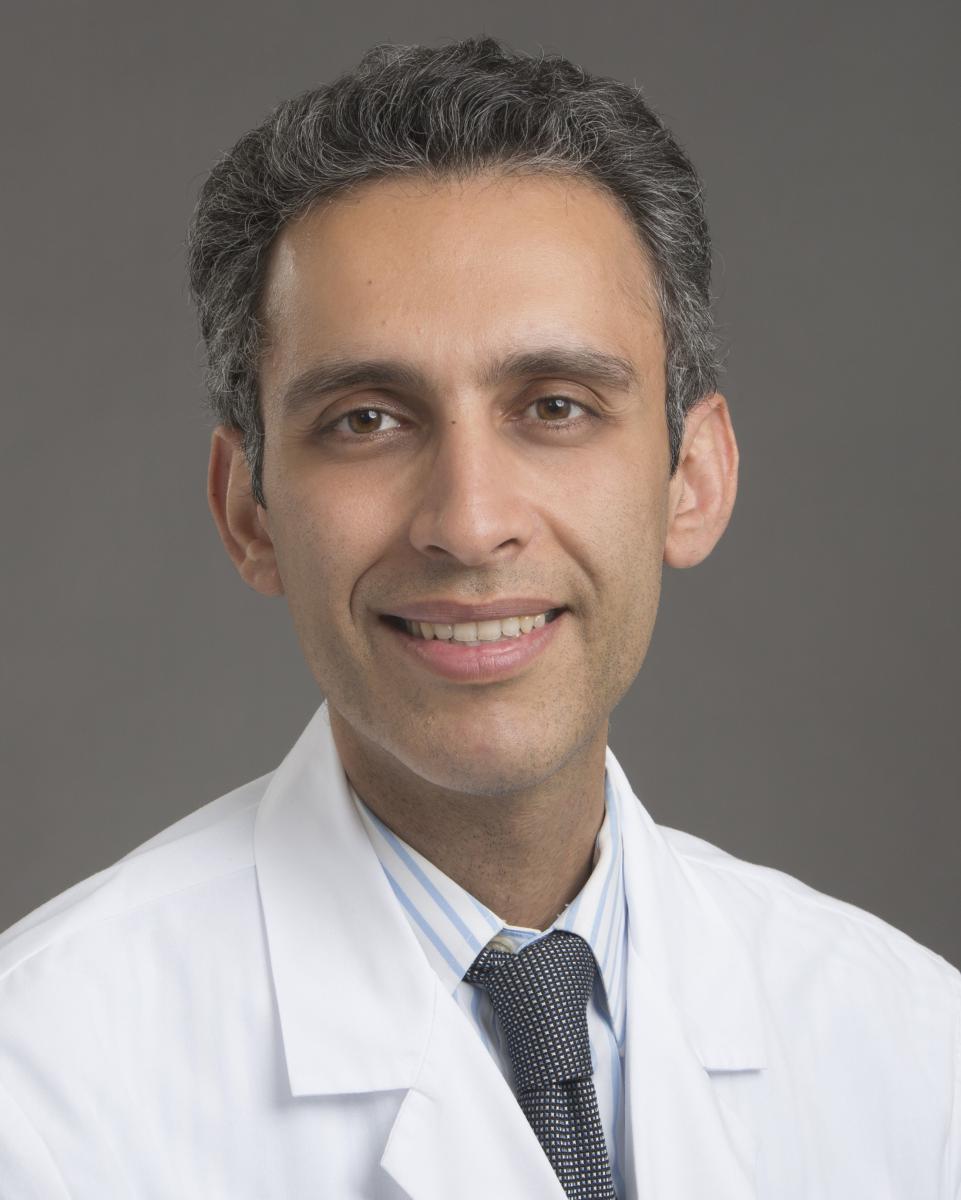
Faraz Bishehsari, M.D., Ph.D.
Rush University Medical Center
Project Title: Development of A Precision Medicine Platform for Circadian Based Therapeutics in Pancreatic Cancer
Grant ID: R01-CA279487
Faraz Bishehsari is a physician-scientist in the field of gastroenterology and an Associate Professor in the departments of Medicine, Anatomy and Cell Biology, and the Graduate College at Rush University. Dr. Bishehsari also serves as the Medical Director of the High-Risk Clinic for Gastrointestinal (GI) Cancers, and the Associate Director of the Rush Center for Integrated Microbiome and Chronobiology Research in Chicago. After graduation from medical school at Tehran University, he pursued a PhD in Molecular Oncology in Europe. Throughout his Internal Medicine residency at the University of Pittsburgh (2008-2011) and Gastroenterology-Hepatology fellowship at Northwestern University (2011-2014), Dr. Bishehsari continued his research in GI neoplasms studying how factors in our environments such as lifestyle choices (i.e., circadian disruption, alcohol and dietary pattern) interact with the microenvironment of the tissue (i.e., microbiome and inflammation) to cause gastrointestinal injury and eventually cancer. In closing the gap between bench and bedside, his lab has been employing tissue-based techniques to establish patient relevant ex vivo models and identify individualized targets for therapies.
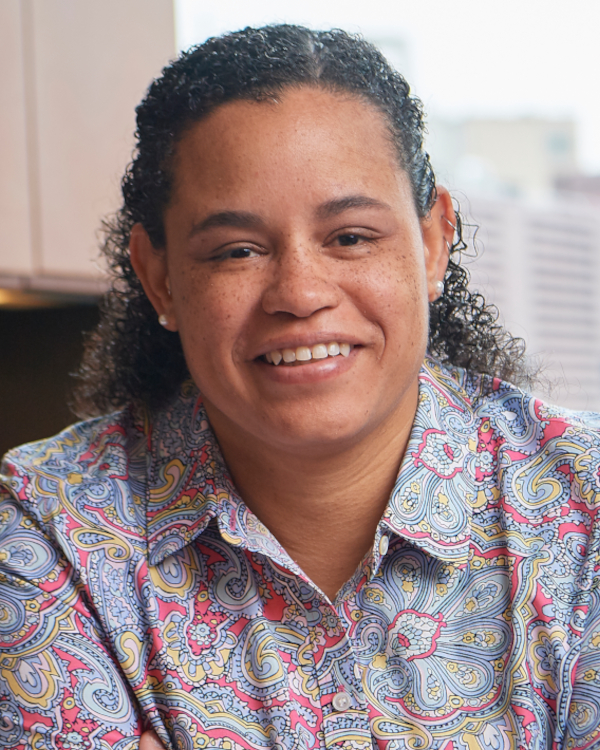
Donita C. Brady, Ph.D.
University of Pennsylvania
Project Title: Unlocking the Chemical Space of Cancer-Associated Perturbations
Grant ID: R01-CA280833
MPIs: George M. Burselm, Ph.D., Luca Busino, Ph.D., Terence P Gade, Ph.D., and Eric Witze, Ph.D.
Dr. Donita C. Brady is a Presidential Associate Professor of Cancer Biology at the University of Pennsylvania. She obtained her Ph.D. in Pharmacology in 2008 with Dr. Adrienne Cox at the University of North Carolina at Chapel Hill in 2008. For her postdoctoral studies, Dr. Brady joined the laboratory of Dr. Christopher Counter at Duke University, which focuses on pharmacologically accessible signaling pathways downstream of oncogenes, like RAS. Her independent laboratory at Penn is founded in a new paradigm in nutrient sensing and protein regulation, termed metalloallostery, where redox-active metals control kinase activity, and is advancing our knowledge in basic science and disease-focused areas. Their focus lies at the intersection of kinase signaling and copper (Cu) homeostasis with the goal of defining the mechanistic features of Cu-dependent kinases to target them in cancer via drug repurposing or development.
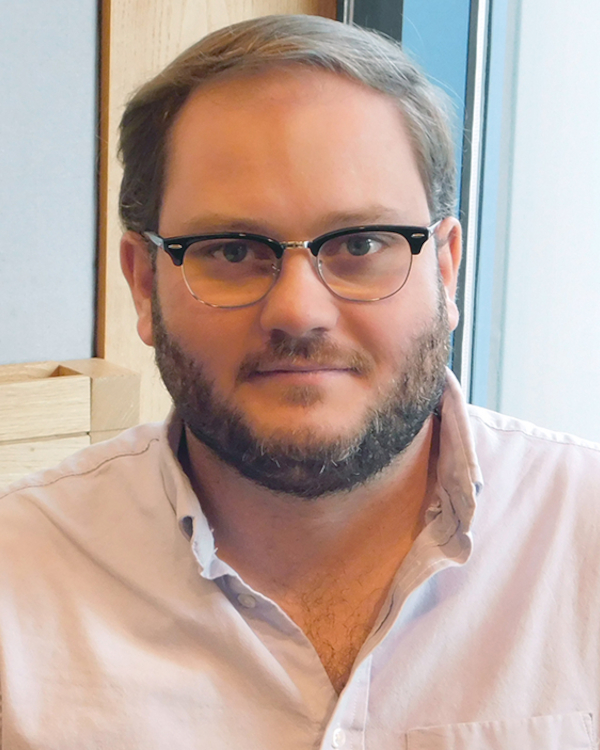
George M. Burslem, Ph.D.
University of Pennsylvania
Project Title: Unlocking the Chemical Space of Cancer-Associated Perturbations
Grant ID: R01-CA280833
MPIs: Donita C. Brady, Ph.D., Luca Busino, Ph.D., Terence P Gade, Ph.D., and Eric Witze, Ph.D.
George M. Burslem is an Assistant Professor in the Departments of Biochemistry and Biophysics, Cancer Biology and the Penn Epigenetics Institute at the University of Pennsylvania. He obtained his undergraduate degree in Chemistry from the University of Bristol, spending a year in the Chemical Biology group at Pfizer. He carried out his master’s research with Professor Tom Simpson FRS at Bristol before moving to the University of Leeds for his doctoral studies under the supervision of Professors Andrew Wilson and Adam Nelson focused on inhibiting protein-protein interactions. He was awarded his PhD in 2015 and moved to Yale University to perform postdoctoral research in the group of Professor Craig Crews, supported by a Leukemia and Lymphoma Society Career Development award, before moving to his current position in 2020. The Burslem lab is interested in developing chemical tools to understand and modulate post-translational modifications.
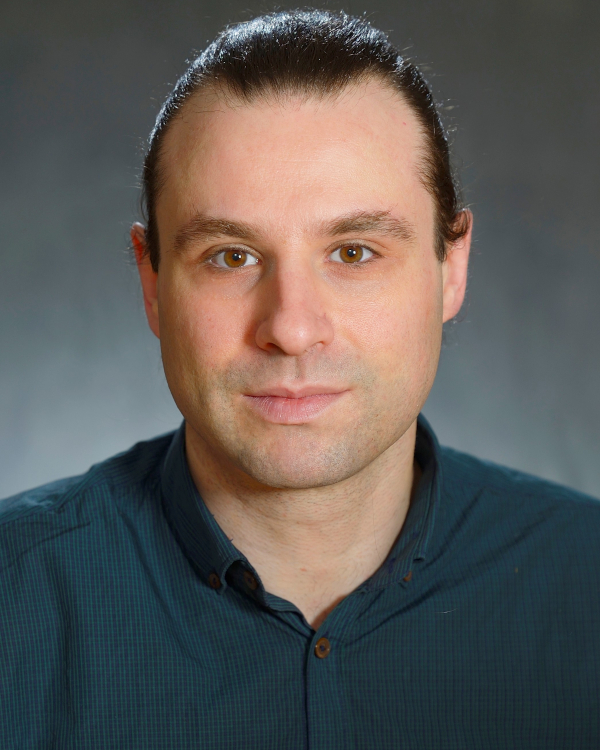
Luca Busino, Ph.D.
University of Pennsylvania
Project Title: Unlocking the Chemical Space of Cancer-Associated Perturbations
Grant ID: R01-CA280833
MPIs: Donita C. Brady, Ph.D., George M. Burselm, Ph.D., Terence P Gade, Ph.D., and Eric Witze, Ph.D.
The overall research program in our lab is based on understanding the mechanistic function of the Ubiquitin Proteasome System (UPS) in regulating protein degradation with a particular focus on normal and aberrant hematopoiesis. Using a combination of human genomic, functional genetic, proteome-based approaches and biochemistry, we investigate uncharacterized E3 ligases with deregulated function in cancer. Our discoveries connect the identification of relevant substrates of E3-ligases to signaling pathways, establishing evolutionarily conserved and critical function for protein degradation. For instance, our work has identified key factors regulating cellular pathways, such as DNA-damage checkpoints, cell cycle, circadian clock, Toll-like-Receptor and NF-κB activation.
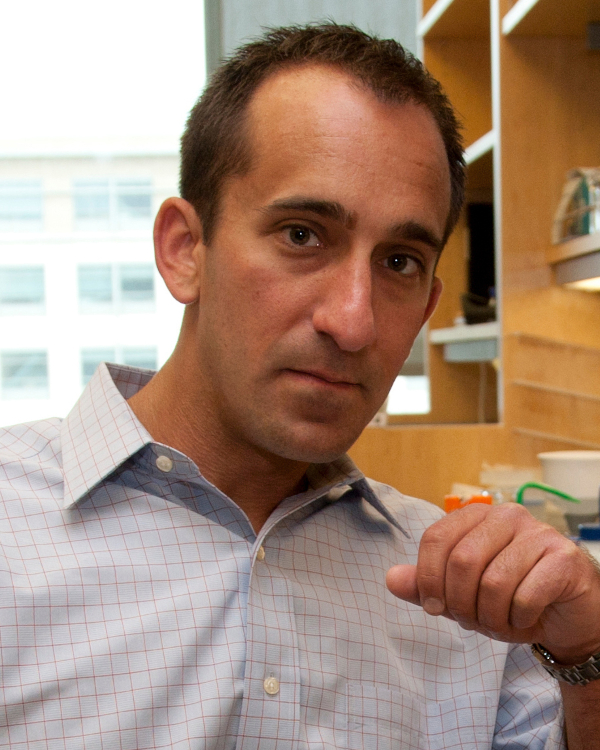
Michael Fischbach, Ph.D.
Stanford University
Project Title: Building the Foundations of Commensal Vaccines
Grant ID: R01-AI175642
Michael Fischbach is an Associate Professor in the Departments of Bioengineering and Microbiology & Immunology at Stanford University, an Institute Scholar of Stanford ChEM-H, and the director of the Stanford Microbiome Therapies Initiative. Fischbach is a recipient of the NIH Director's Pioneer and New Innovator Awards, an HHMI-Simons Faculty Scholars Award, a Fellowship for Science and Engineering from the David and Lucille Packard Foundation, a Medical Research Award from the W.M. Keck Foundation, and a Burroughs Wellcome Fund Investigators in the Pathogenesis of Infectious Disease award. His laboratory uses a combination of genomics and chemistry to identify and characterize small molecules from microbes, with an emphasis on the human microbiome. Fischbach received his Ph.D. as a John and Fannie Hertz Foundation Fellow in chemistry from Harvard in 2007; after two years as an independent fellow at Massachusetts General Hospital, Fischbach joined the faculty at UCSF, where he founded his lab before moving to Stanford in 2017. Fischbach is a co-founder and director of Federation Bio and Viralogic, a co-founder of Revolution Medicines, a member of the scientific advisory board of NGM Biopharmaceuticals, and an innovation partner at The Column Group.
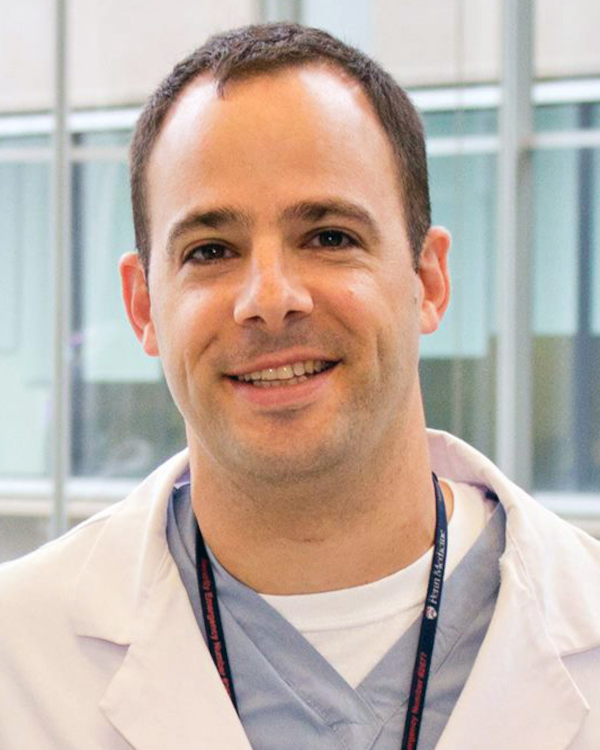
Terence P. Gade, M.D., Ph.D.
University of Pennsylvania
Project Title: Unlocking the Chemical Space of Cancer-Associated Perturbations
Grant ID: R01-CA280833
MPIs: Donita C. Brady, Ph.D., George M. Burselm, Ph.D., Luca Busino, Ph.D., and Eric Witze, Ph.D.
Dr. Gade is an assistant professor of Radiology in Cancer Biology and co-Director of the Penn Image-Guided Interventions Lab as well as an Attending Interventional Radiologist at the University of Pennsylvania and Corporal Michael J. Crescenz VA Medical Center. His research interests lie at the intersection of cancer biology, molecular imaging and image-guided interventions.
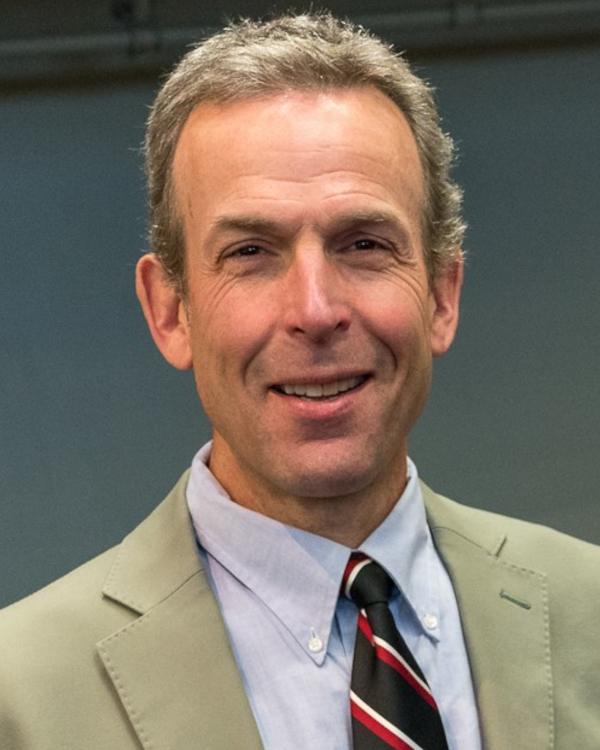
Chris Garcia, Ph.D.
Stanford University
Project Title: A Global Map of Interactions Among Human Cell Surface Proteins and Secreted Ligands
Grant ID: R01-GM150125
MPIs: Matthew Thomson, Ph.D. and Kai Zinn, Ph.D.
Chris Garcia’s interests reside at the cell surface, and his laboratory is investigating structural and functional aspects of cell surface receptor recognition and activation, in receptor-ligand systems with relevance to human health and disease. A common theme is that structural information on receptor-ligand complexes is used to engineer variant proteins and/or surrogates to manipulate receptor signaling and cellular function, as well as act as biological probes to perturb systems in vivo, with an eye towards therapeutic applications. The receptor systems studied derive principally from the immune system (TCR/MHC, cytokines, chemokine GPCR), but additionally encompass several systems that are also important in neurobiology (Neurotrophins, Semaphorins) and development (Notch, Wnt). Dr Garcia’s lab also has an active program in deorphanizing cell surface receptors, including IgSF members.
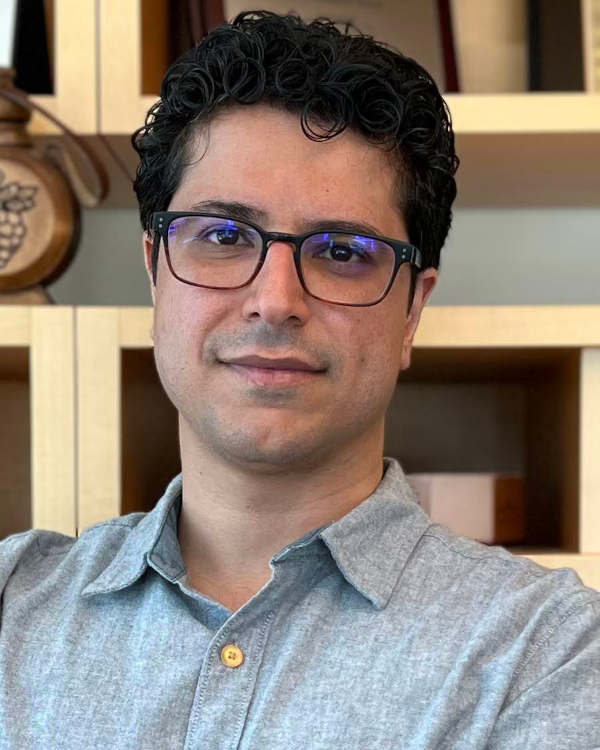
Hani Goodarzi, Ph.D.
University of California, San Francisco
Project Title: Leveraging Natural Phenotypic Variations of Heterogenous ALS Populations-In-A-Dish to Enable Scalable Drug Discovery
Grant ID: R01-NS131409
MPI: Justin Ichida, Ph.D.
Dr. Hani Goodarzi is an Associate Professor and a Chan Zuckerberg Biohub Investigator at the University of California, San Francisco. With a dual background in computational and experimental genomics, he brings a multidisciplinary approach to studying complex human diseases. His research is focused on developing novel discovery platforms that help reveal previously unknown molecular mechanisms underlying cellular homeostasis and disease progression. By developing novel technologies for genome-wide measurement of hard-to-quantify RNA molecules, he has also made key discoveries about the role of non-coding RNAs in health and disease. On the computational front, Dr. Goodarzi is focused on building biology-inspired and genome-scale machine learning models that help decode the biology of human genome. Most recently, for his contributions to cancer research, he was awarded the Vilcek Prize for Creative Promise and AACR-MPM Transformative Cancer Research Award.
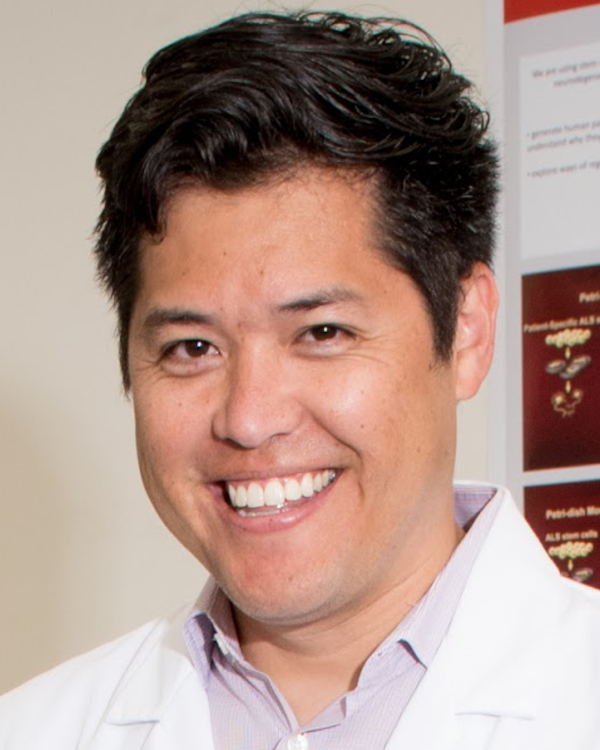
Justin Ichida, Ph.D.
University of Southern California
Project Title: Leveraging Natural Phenotypic Variations of Heterogenous ALS Populations-In-A-Dish to Enable Scalable Drug Discovery
Grant ID: R01-NS131409
MPI: Hani Goodarzi, Ph.D.
Justin K. Ichida is an Associate Professor of Stem Cell Biology and Regenerative Medicine at the Keck School of Medicine of USC and a John Douglas French Foundation Endowed Professor. Dr. Ichida conducts research on the etiology, pathogenesis, genetics, and treatment of neurodegenerative diseases, with a focus on amyotrophic lateral sclerosis (ALS) and frontotemporal dementia.
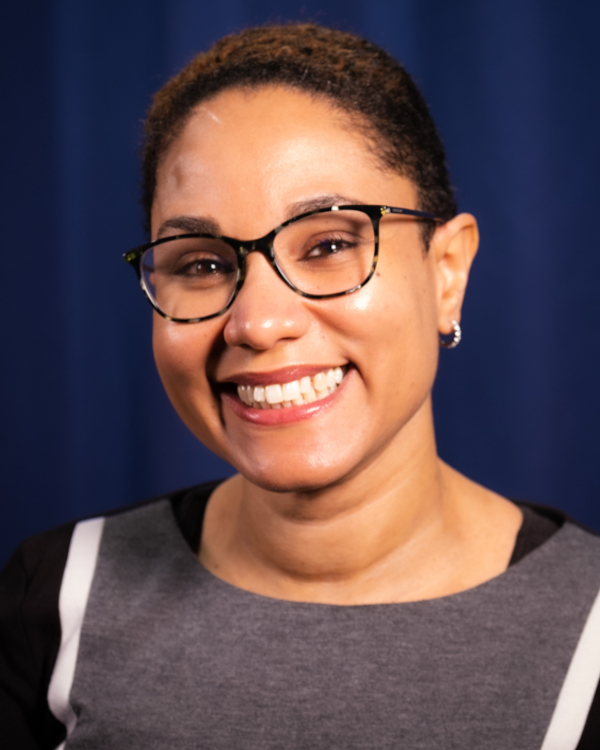
Arielle H. Sheftall, Ph.D.
University of Rochester
Project Title: Leveraging Noninvasive Transcutaneous Vagus Nerve Stimulation and Smartphone Technology to Reduce Suicidal Behaviors and Suicide Among Highly Vulnerable Adolescents
Grant ID: R01-MH133226
MPIs: Theodore Beauchaine, Ph.D. and Kristin Valentino, Ph.D.
Arielle H. Sheftall, PhD is an Associate Professor at the University of Rochester Medical Center in the Department of Psychiatry in Rochester, New York. She is also the Director of Academic Affairs for the Diversity, Inclusion, Culture, and Equity (DICE) Board for the department. Her research focuses on the developmental mechanisms in early to middle childhood that confer vulnerability to future suicidal behavior. It is her goal to frame targets for early intervention to decrease incidence of a first suicide attempt in at-risk youth. Additionally, Dr. Sheftall is interested in the racial disparities present in suicidal behavior among youth. She is a member of the Congressional Black Caucus Emergency Taskforce that continues to examine risk factors, practice, and policy recommendations necessary to decrease suicidal behaviors in Black youth and is a subject matter expert for the Office of Minority Health focusing on mental health promotion and suicide prevention for Black youth. Finally, Dr. Sheftall receives funding from the National Institute of Mental Health and American Foundation for Suicide Prevention.
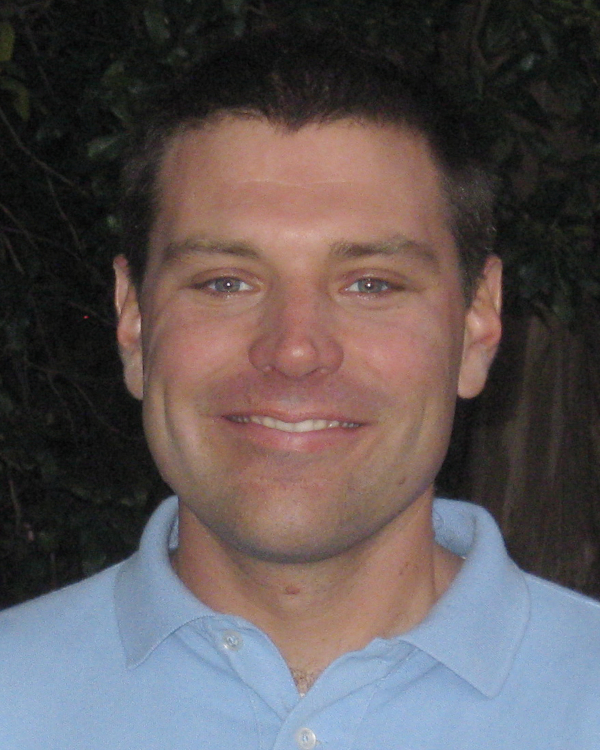
Matthew Thomson, Ph.D.
California Institute of Technology
Project Title: A Global Map of Interactions Among Human Cell Surface Proteins and Secreted Ligands
Grant ID: R01-GM150125
MPIs: Chris Garcia, Ph.D. and Kai Zinn, Ph.D.
Matt Thomson received his AB in Physics and PhD in Biophysics from Harvard University. His graduate work focused on mathematical and data analysis methods for inference and modeling of regulatory networks in biology. Matt was an independent fellow at UCSF where he worked on mathematical methods for modeling the cell fate code and tissue self-organization. Matt is now an Assistant Professor of Computational Biology at Caltech.
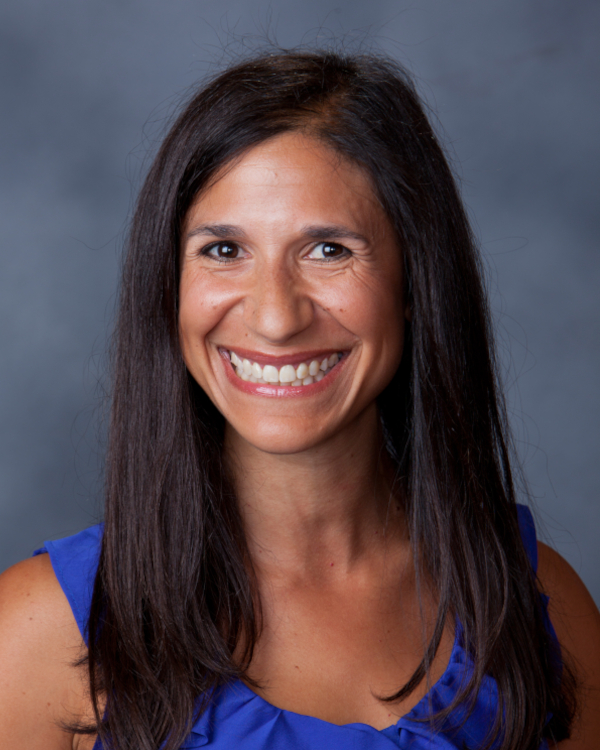
Kristin Valentino, Ph.D.
University of Notre Dame
Project Title: Leveraging Noninvasive Transcutaneous Vagus Nerve Stimulation and Smartphone Technology to Reduce Suicidal Behaviors and Suicide Among Highly Vulnerable Adolescents
Grant ID: R01-MH133226
MPIs: Theodore Beauchaine, Ph.D. and Arielle Sheftall, Ph.D.
Dr. Valentino’s program of research addresses how adversity affects child development and the development of psychopathology with a focus on transdiagnostic mechanisms that may promote risk and/or resilience among maltreating families. She evaluates how interventions may be designed to improve these mechanisms, which, in turn, may improve developmental outcomes for maltreated children. Guiding her research is a developmental psychopathology perspective which emphasizes the interface between normal and atypical development and employs a multiple-levels-of analysis approach towards the study of child development and child psychopathology. Dr. Valentino is the President-Elect for the American Psychological Association Division 37 Section on Child Maltreatment. She serves as an Associate Editor for the journal Child Maltreatment and as a member of the National Institute of Health’s Psychosocial Development, Risk, and Prevention Study Section.
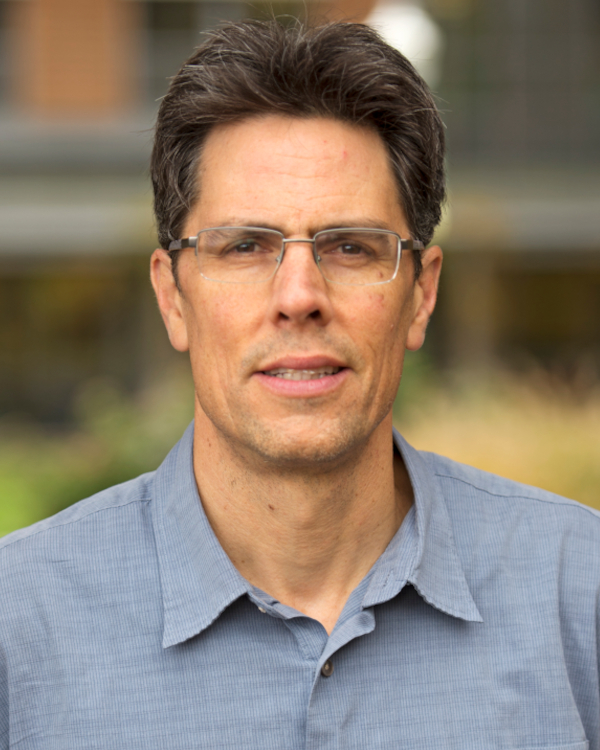
Mark J. Van Ryzin, Ph.D.
University of Oregon
Project Title: Transforming Adolescent Mental Health Through Accessible, Scalable, Technology-Supported Small-Group Instruction
Grant ID: R01-MH133225
My research focuses on the impact of relationships on youth development, including family functioning, teacher-student relationships, and peer relations. In particular, I am interested in how peer and family processes impact adolescent behavior and adjustment, and how these processes can be modified by prevention programming. I have both basic and applied aspects to my work, in which research findings on adolescent development can inform the refinement and optimization of prevention programs and, in turn, the implementation and evaluation of prevention programs can inform developmental theory. My ultimate goal is to develop and integrate streamlined, efficient, technology-based prevention strategies into schools and community settings.
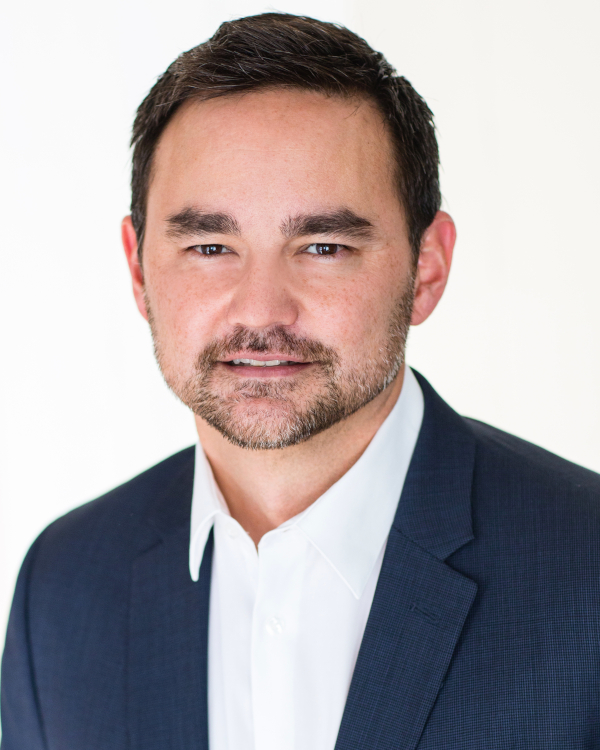
Eric Witze, Ph.D.
University of Pennsylvania
Project Title: Unlocking the Chemical Space of Cancer-Associated Perturbations
Grant ID: R01-CA280833
MPIs: Donita C. Brady, Ph.D., George M. Burselm, Ph.D., Luca Busino, Ph.D., and Terence P. Gade, Ph.D.
Eric Witze studies signal transduction mechanisms and their regulation by the post translational modification S-palmitoylation, the addition of the 16-carbon fatty acid palmitate to cysteine residues. His lab has focused on understanding the importance of palmitoylation in regulating oncogenic signaling in multiple cancer types using chemical probes to measure the levels and spatial localization of palmitoylation in cancer cells and tumors. Dr. Witze earned his Ph.D from the University of California, Santa Barbara, where he studied cell fate determination in the nematode C. elegans and completed a postdoctoral fellowship at the University of Colorado, Boulder and the Howard Hughes Medical Institute using proteomic methods to understand cell signaling.
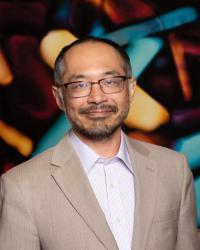
Ryohei Yasuda, Ph.D.
Max Planck Florida Institute for Neuroscience
Project Title: Primary Cilia: A Novel Signaling Gateway To Neural Circuit Modulation
Grant ID: R01-MH132710
MPIs: Eva Anton, Ph.D. and Jeff Lichtman, M.D., Ph.D.
Dr. Ryohei Yasuda has been Scientific Director of the Max Planck Florida Institute since January 2012. He received his Ph.D. in physics in 1998 from Keio University Graduate School of Science and Technology in Yokohama, Japan. After being a post-doctoral fellow at the Cold Spring Harbor Laboratory, he became an assistant professor of the Neurobiology department at the Duke University Medical Center. Dr. Yasuda’s lab focuses on the intracellular mechanisms underlying synaptic plasticity, learning, and memory by using new biosensors and optical molecular actuators. His work has been recognized with the Research Award for Innovative Neuroscience from the Society for Neuroscience and the NIH Director’s Pioneer Award.
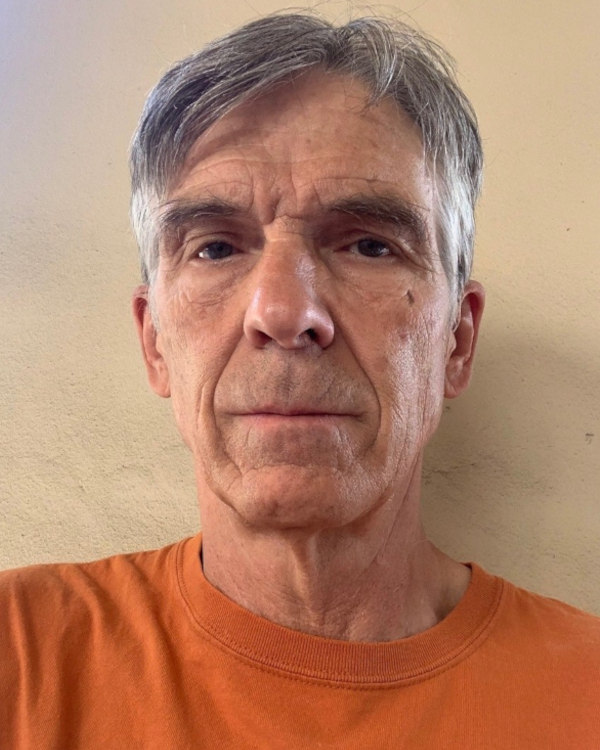
Kai Zinn, Ph.D.
California Institute of Technology
Project Title: A Global Map of Interactions Among Human Cell Surface Proteins and Secreted Ligands
Grant ID: R01-GM150125
MPIs: Chris Garcia, Ph.D. and Matthew Thomson, Ph.D.
Most of the work in my laboratory at Caltech has concerned the mechanisms through which cell surface protein interactions determine synaptic connectivity patterns in Drosophila. One of our major projects was to define the functions of neural receptor tyrosine phosphatases in the control of axon guidance and synapse formation. We began collaborating with Christopher Garcia’s group at Stanford in 2011 on a screen for interactions among ~200 Drosophila cell surface proteins. This led to the identification of the Dpr-DIP network, composed of 32 interacting proteins, each of which is expressed in a unique subset of neurons at each stage of development. The success of the Drosophila interactome screen led us to later conduct a similar screen for >500 human cell surface proteins. We have since been developing methods to allow us to perform a global screen for interactions among all single-transmembrane human cell surface proteins, and this work formed the basis for our application for the Transformative Research Award.


